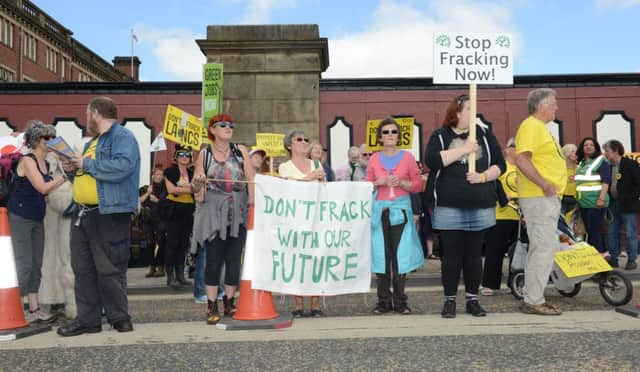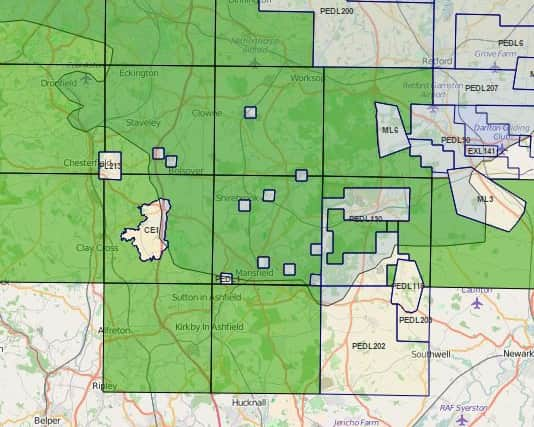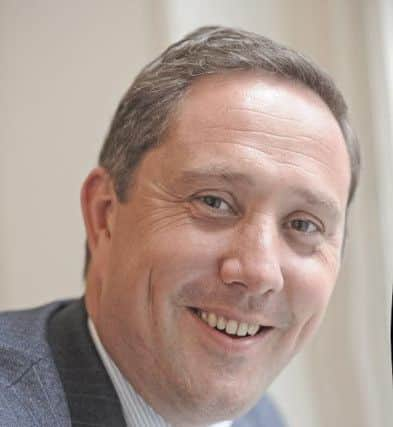Is fracking really such a bad idea?


Last year the Government awarded fracking licences which cover vast swathes of North Nottinghamshire, Derbyshire and South Yorkshire, with the possibility of small areas under the Derbyshire Dales also affected.
The licence does not automatically allow the fracking company to commence operations - they must first obtain planning permission from the relevant local authority.
Advertisement
Advertisement
And initially drilling will only be exploratory - they will be allowed to drill down around 800 metres to establish whether conditions are right for fracking to take place.


But it is not a popular idea - there is a vast amount of resistance to fracking, both from organised pressure groups and people concerned for the potential impact on their homes and their local communities.
Understandable perhaps . . . but is there another side to the story?
In the interests of balance, we have spoken to INEOS Upstream - the company which has been granted the fracking licences for our area.
Advertisement
Advertisement
Tom Pickering, operations director at INEOS, said: “There is no risk-free energy solutions but, if we don’t find a solution, the lights really could go out.


“Coal is dirty, nuclear is expensive, importing gas means we are dependent on getting supplies from some of the most unstable regions in the world, and renewables simply don’t provide enough energy all of the time.
“We believe shale gas could play an important part in providing us with the energy that could power the nation into the future and help reduce CO2 emissions.
“We also understand that we need to have a fair and open debate that asks the challenging questions, but also one that clearly assesses the positives and the negatives moving forward.”
Advertisement
Advertisement
Mr Pickering said that there had been problems in the early days of fracking, but these had occurred in America, which is less regulated than the industry would be in England.


Anti-fracking groups are also clouding the debate, using images from the Texan oil fields, which have been fracked heavily for many years, he said.
But he added that fracking, even in the US, has now moved on significantly, and their are examples in areas such as Pennsylvania, which demonstrate that shale gas extraction can take place sympathetically and with no or minimal lasting impact to environments and landscapes.
“Shale gas can sustain manufacturing jobs,” he said. “What we want to achieve as a business is security of energy - ideally from under our feet rather than from overseas.
“Our approach to this will be cautious, and science-based.


Advertisement
Advertisement
“We are going to work very hard with local communities to explain ourselves and the science behind what we do.
“After three months of drilling, then one week of fracking, the reality is that drill sites will be reduced down to something like the size of a tennis court with a small pipe like a fire hydrant.”
According to the Department for Energy and Climate Chance, fracking could create between 16,000 and 32,000 jobs nationally in the gas industry and wider supply chain, while a study from the Institute of Directors estimates that the figure could be double.
If exploration proves positive, shale gas extraction could also contribute towards creating a more stable and balanced economy - pro-fracking groups argue.
Advertisement
Advertisement
Additionally, communities would benefit from significant investment, new jobs and tax revenue if extraction went ahead.
Communities would also receive a share of revenue from fracking, which would boost local economies and improve public services.
INEOS has pledge to plough six per cent of all revenue from shale gas extraction back into the communities the process impacts - with four per cent going to home and landowners in the immediate vicinity of a well, and two per cent going to the wider area.
If fracking were to take place under Shirebrook, for example, it could mean many hundreds of millions of pounds reinvested back into the area, and others impacted by the demise of traditional industries such as coal mining.
Advertisement
Advertisement
A typical 10km square site would lead to around £375 million invested back into the area over the operation’s lifetime, the company said.
“We believe we can conduct operations without ruining the view or disrupting life nearby,” Mr Pickering added.
“We want local communities to share in the wealth that shale gas can provide.”
Pictured: People campaigning against fracking (top), a map of the areas in Nottinghamshire, Derbyshire and South Yorkshire which have been granted fracking licences, and INEOS operations director Tom Pickering.